Post
A catch
Save a catch to start your fishing logbook. You will be able to to share it with the community if yo want!
A fishing trip
Post an ad to go fishing with other fishermen
Save a catch to start your fishing logbook. You will be able to to share it with the community if yo want!
Post an ad to go fishing with other fishermen
Share a thought, a question with the community
My favorite cities
×Keep your rods ready for Englewood in Clark. The fishing forecast is currently 6. The most caught fishes here are the largemouth bass, the american shad, the arctic grayling and the spotted seatrout. Come try the most famous fishing techniques like the trolling, deep-sea fishing, trolling for mackerel or angling - using natural bait.
Our fishing forecast of Englewood indicates the best time to go fishing in this city.
The Largemouth Bass
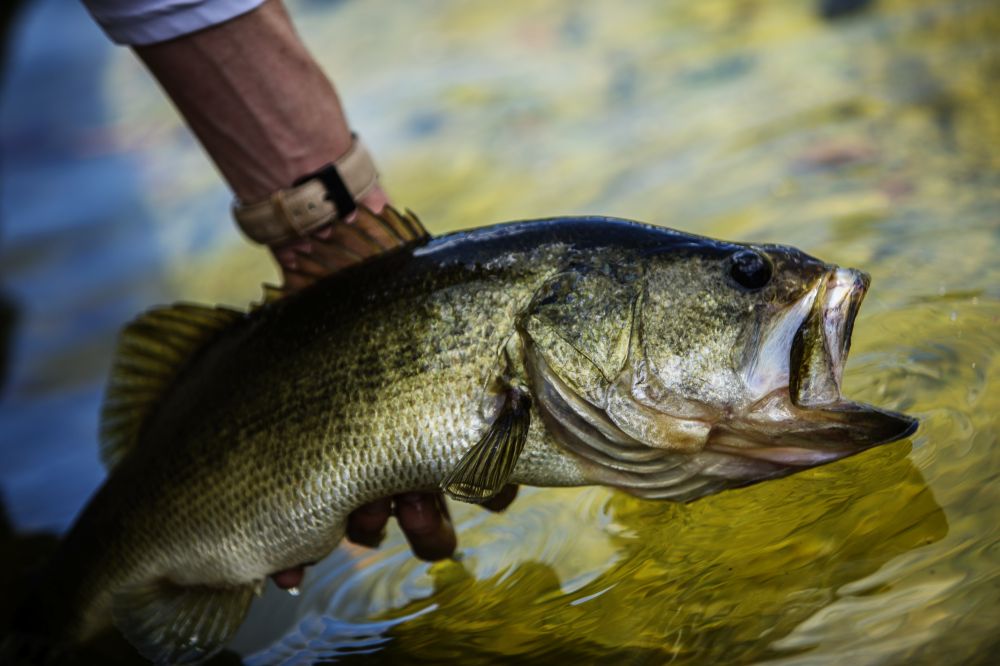
The Largemouth Bass belongs to the Centrarchidae family. It has an average size of 45 cm but may reach 60 cm. The maximum recorded weight was 10,09 kg. It has a lifespan of 6 years. It breeds between February and July. It can be fished all year round. Largemouth bass has a large mouth with a slightly oblique mouth. Its body is thin to robust, slightly flattened laterally and of oval cross-section. The corner of the mouth extends beyond the eye. The back and head are dark green to light green in color with lighter sides and a whitish belly and underside. A large lateral band can be seen from the snout through the eyes to the base of the tail. Towards the tail, there is a series of spots of different sizes. These spots become a solid and uniform band on the caudal peduncle. The eye is golden brown. Vertical fins slightly pigmented, generally clear paired fins; caudal fin in young and adult. Adults in muddy lakes are dark olive brown to black, with marks that are difficult to distinguish. Males in breeding condition tend to be darker in color.
The Largemouth Bass is a famous fish you can catch in Englewood.The American Shad
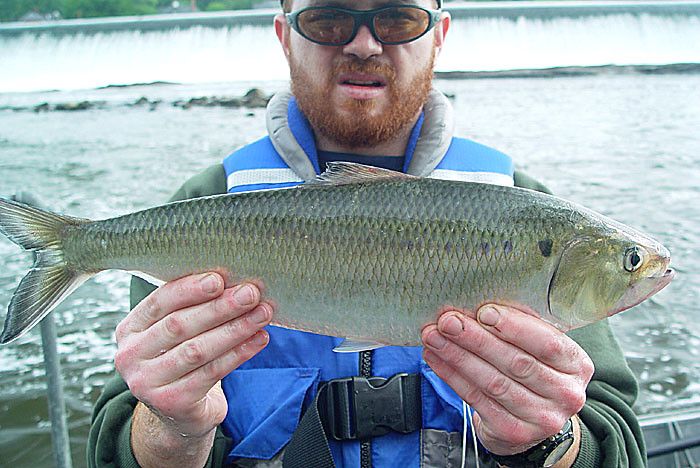
The American Shad belongs to the Clupeidae family. With an average of 38 cm, adult specimens can measure up to 76 cm and weigh between 0.9 and 1.4 kg. It can live up to 13 years old. Egg laying takes place in May, June or July. On average, the female lays 140,000 eggs, but can reach 600,000 eggs. It is fished in the spring. The American shad is characterized by its slender, high and very flattened body. The species has a very forked caudal fin and a low, elongated anal fin. It has no lateral line or adipose fin. Its color is silvery with a blue or blue-green sheen on the back and bright silver flanks. When entering fresh water for reproduction, the pigmentation may become darker, taking on a tan or copper hue, turning red for the head and belly parts. A black spot is visible near the top edge of the lid, sometimes followed by smaller spots. Its lower jaw fits into a notch in its upper jaw. It can also be recognized by its large scales that are easily detached. The ventral surface of the American shad is thin with saw tooth scales. With regard to internal characteristics, it has teeth in the premaxillary and lower jaw, a silver peritoneum and, between 53 and 59 vertebrae.
The American Shad is a famous fish you can catch in Englewood.The Arctic Grayling
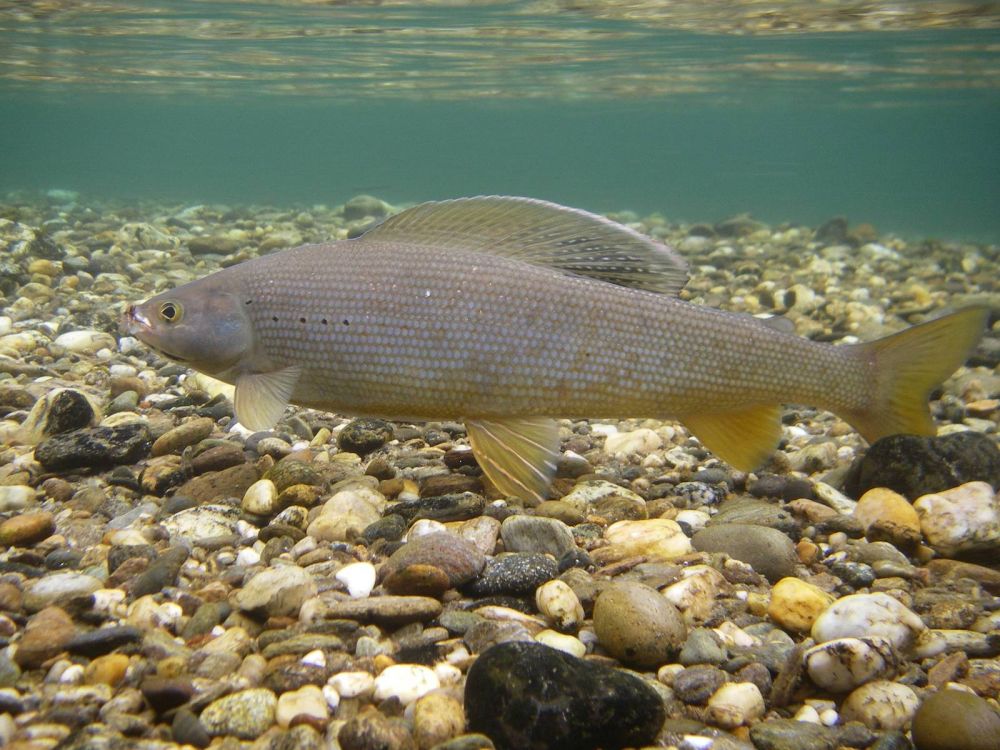
The Arctic Grayling belongs to the Salmonidae Family. The Arctic shade can reach a length of about 24 cm long and weighs about 3 kg. He can live to be 18 years old. It breeds in the spring and lays thousands of eggs. It can be fished all year round. Coloring may vary depending on the location. The dorsal fin is usually bordered red and dotted with large iridescent red, turquoise, purple or purple spots and marks. Back marks are more evident on the large shadows. The back of the Arctic shadow is generally dark. The sides can be in black, silver, gold, or blue. Gold markings sometimes form a border between the hips and the belly, while pelvic fins can be orange, red or pink. The sides and head can be freckles with black spots. The eye of the iris is often the color of gold.
The Arctic Grayling is a famous fish you can catch in Englewood.The Spotted Seatrout
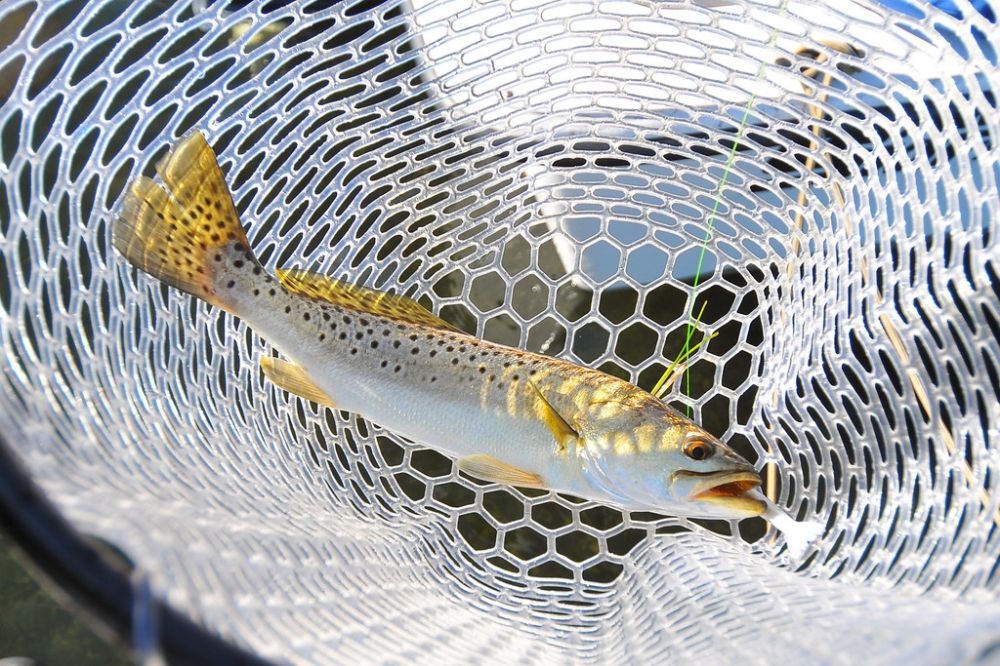
The Spotted Seatrout belongs to the Scianidae family. Spotted sea trout reach a maximum length of 100 cm and a maximum weight of 7.9 kg. The lifespan of this species is 8 to 10 years. It breeds from March to September. It can be fished all year round. The spotted seatrout has an elongated, somewhat compressed body with a slightly elevated back. The head is long with a pointed snout and a large oblique mouth. The dorsal fin is continuous or slightly separated. The fins are flake-free, with the exception of 1 to 10 rows of small scales at the base of the dorsal and anal fins. The lateral line extends over the tail, characteristic of all Sciaenidae. The body of the spotted seatrout is silvery with irregular black spots on the upper half, from the dorsal fin to the caudal fin. The dorsal side is dark grey with bluish reflections while the ventral side is silvery to white. The dorsal fin is dark, while the others are yellowish.
The Spotted Seatrout is a famous fish you can catch in Englewood.The Paddlefish
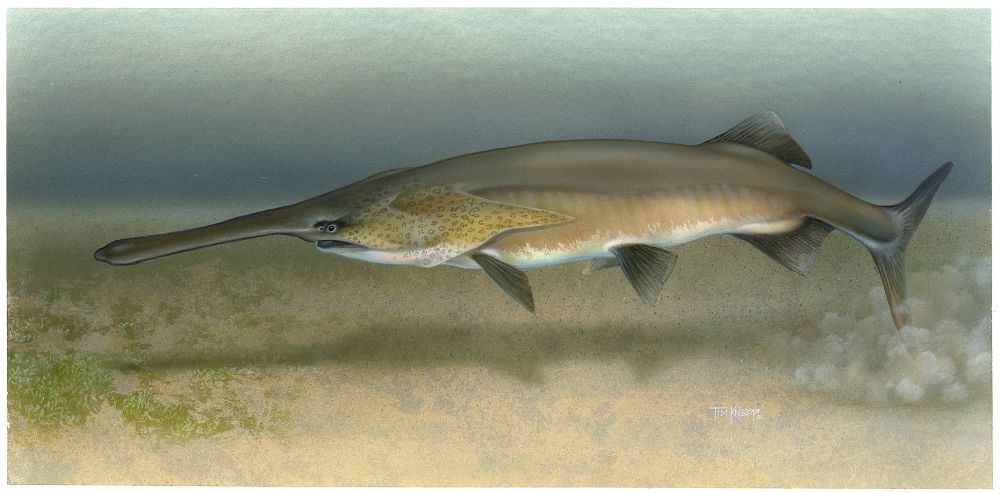
The Paddlefish belongs to the Polyodontidae family. The adult size is between 1.2 m to 1.8 m. It has a lifespan of 20 to 30 years. They spawn in April to May. It can be fished from mid-May to June. The long paddle-shaped snout of this fish represents about one-third of its total body length. The snout helps stabilize fish as they swim and also contains specialized cells that help detect swarms of plankton that this species feeds on. The skin is smooth. Small individuals are pink at the back and white at the base; for older people, around 25 à 30 cm, the body color changes to bluish grey on the back and cream on the vent. The eyes are small compared to the rest of the head and body. On the underside of the snout are two little barbells in front of a large, toothless mouth. When seen through the mouth, the gills are large and show the many closely spaced filaments that trap microscopic food. On each side, a gill cover extends backwards, ending with a long pointed flap. The skeleton is composed of cartilage rather than bone. The tip of the spine extends into the upper lobe of the heterrorcercal tail, much like a shark does.
The Paddlefish is a famous fish you can catch in Englewood.Our fishing forecast of Englewood indicates the best time to go fishing in this city.
Our fishing forecast of Englewood indicates the best time to go fishing in this city.
Our fishing forecast of Englewood indicates the best time to go fishing in this city.
